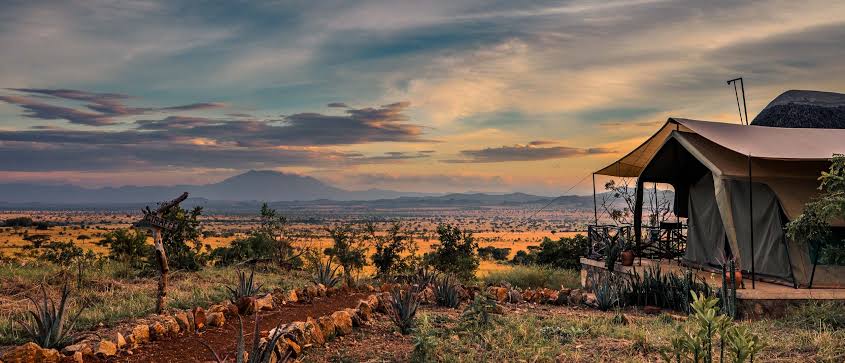Uganda, often referred to as the “Pearl of Africa,” is a diverse and culturally rich country with a unique set of customs, traditions, and laws. As a visitor or resident, it’s essential to be aware of the do’s and don’ts to ensure a respectful and enjoyable experience. In this article, we’ll explore 15 things you are forbidden to do in Uganda. Whether you’re planning a trip or seeking to understand Ugandan culture, this guide will provide valuable insights into the country’s social norms and legal regulations.

**1. Disrespecting Cultural Traditions**
Uganda is home to numerous ethnic groups, each with its own cultural traditions. It is forbidden to disrespect or belittle these traditions, including ceremonies, rituals, and customs. When visiting local communities, it’s a good practice to ask questions and seek permission before participating in or observing cultural events.
**2. Public Displays of Affection**
Public displays of affection, such as kissing and hugging, are generally frowned upon in Uganda. It’s important to be mindful of cultural norms regarding physical contact. While some urban areas may be more tolerant, it’s best to avoid overly affectionate behavior in public spaces.
**3. Nudity and Immodest Dressing**
Nudity and immodest dressing are considered offensive and inappropriate in Ugandan society. When visiting public places, wear clothing that covers your shoulders and knees, especially when entering religious sites or rural areas. Dressing modestly shows respect for local customs and values.
**4. Public Intoxication**
Public intoxication is against the law in Uganda. Drinking alcohol excessively and causing a public disturbance can lead to legal consequences. While Uganda has a vibrant nightlife scene in some cities, it’s crucial to consume alcohol responsibly and be aware of local regulations.
**5. Littering**
Littering is a punishable offense in Uganda. Dispose of trash properly by using designated bins or carrying it with you until you find an appropriate place to discard it. Respect for the environment is essential to maintaining Uganda’s natural beauty.
**6. Homosexuality**
Homosexuality is illegal in Uganda and is met with strong social and legal sanctions. It’s essential to be discreet and respectful of local laws and customs. Avoid public discussions or displays related to LGBTQ+ issues.
**7. Insulting the President**
Insulting the President of Uganda is a serious offense and can result in legal consequences. Avoid making disrespectful comments about political figures, and be mindful of discussions related to politics.
**8. Taking Photos Without Consent**
Always ask for permission before taking photos of individuals, especially in rural areas or when photographing children. Some people may consider it intrusive, and it’s respectful to seek consent.
**9. Exporting Wildlife and Souvenirs**
Exporting wildlife products and certain souvenirs, such as ivory and animal skins, is illegal in Uganda and can lead to severe penalties. Be cautious when purchasing souvenirs and ensure they comply with international regulations.
**10. Camping Without Permission**
Camping in national parks or protected areas without proper permits is not allowed. Obtain the necessary permissions before setting up camp, and follow park regulations to protect the environment and wildlife.
**11. Defacing Currency**
Defacing or damaging the Ugandan currency is illegal. Treat local currency with respect and handle it carefully to avoid accidentally defacing it.
**12. Smoking in Public Places**
Smoking in public places, including restaurants and government buildings, is prohibited in many areas of Uganda. Respect designated smoking areas and adhere to no-smoking policies.
**13. Crossing Red Lights**
Obey traffic rules and avoid crossing red lights. Traffic violations can result in fines or accidents. Ensure you have the proper documentation, such as an international driver’s license, if you plan to drive in Uganda.
**14. Importing Drugs and Restricted Substances**
Importing drugs or restricted substances into Uganda is against the law and can lead to severe penalties, including imprisonment. Be aware of local drug regulations and avoid carrying any prohibited substances.
**15. Disrespecting Elders**
In Ugandan culture, elders are highly respected. It’s important to show deference and politeness when interacting with older individuals. Use proper titles and greetings when addressing them, and seek their guidance and wisdom when appropriate.

Uganda is a nation with a rich cultural heritage and a set of social norms and laws that reflect its unique identity. By understanding and respecting these rules, you can have a more enriching and enjoyable experience while visiting or residing in this beautiful country. Remember that cultural sensitivity and legal compliance are essential when exploring Uganda’s diverse landscapes, engaging with its welcoming people, and contributing to responsible tourism in the “Pearl of Africa.”

